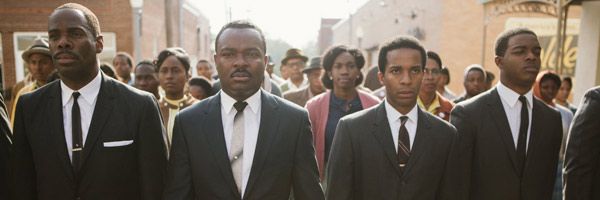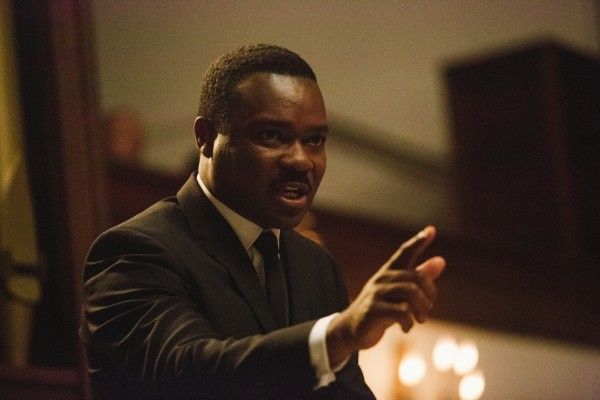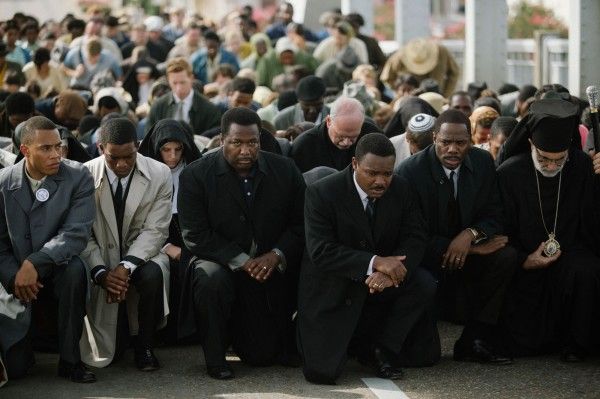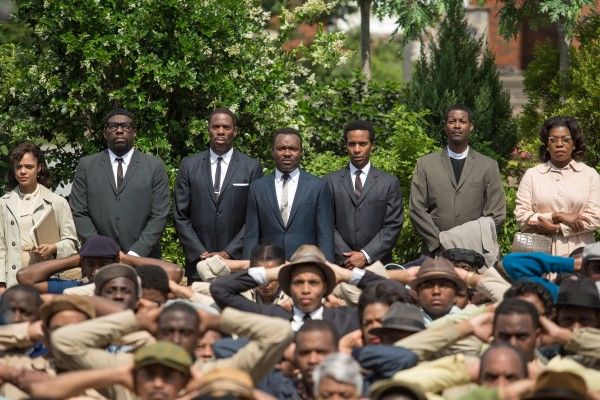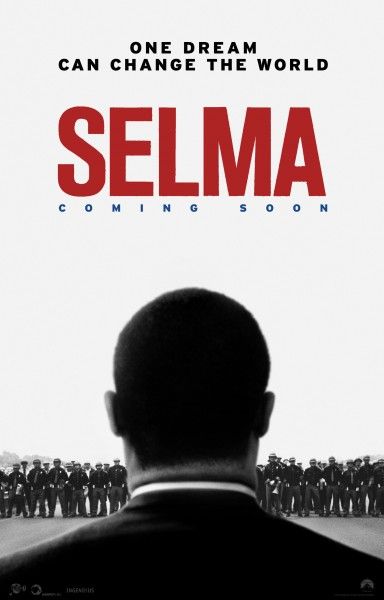Selma is tragically timeless. The Civil Rights Movement, and in particular, Dr. Martin Luther King Jr.'s march from Selma to Montgomery, Alabama, should be a completed accomplishment. It should be something we look back on, shake our heads at the ignorance and hatred of the time, celebrate those who were brave enough to fight back, and then we can go on with our daily lives. But that didn't happen, and director Ava DuVernay doesn't let her movie sit as a nice, historical relic that smoothes over difficult events and complicated people in an attempt to placate her audience. While we know King's march ended in an important victory for African-Americans, Selma goes deep into the politics and personal relationships behind that success. Although the timeline can be a bit fuzzy and some characters could be better defined, DuVernay has crafted a powerful film anchored by a remarkable performance by David Oyelowo and an unflinching resolve to observe the brutality and complications of a Civil Rights Movement that's sadly far from over.
The film is based on the events leading up to and including the 1965 march from Selma to Montgomery to demand equal voting rights. Although the protest is spearheaded by Dr. Martin Luther King Jr. (Oyelowo) and the SCLC, we're shown the many players who participated in these events including other black leaders, President Lyndon Johnson (Tom Wilkinson), racist Alabama Governor George Wallace (Tim Roth), SNCC member John Lewis (Stephen James), and the many unnamed, noble individuals who risked their lives to stand up for civil rights.
It would have been easy to give into the temptation to follow only King and make him a saint who singlehandedly led the African American community to this monumental achievement. King's importance cannot be understated, and Oyelowo is incredible as he channels the leader rather than just doing a good impression. He shows us how King could command an audience with his speeches, but feel deep doubt and regret in his private moments. But more importantly, DuVernay and screenwriter Paul Webb are willing to do something I thought the film wouldn't dare, which is accept that King was flawed, and not in the generic, "He cares too much!" cop-out. It's a brave move that humanizes King and is one of the reasons the overall struggle feels real.
The picture also feels real because DuVernay is eager to explore multiple points of view. The movie stresses the complicated politics not only between King and Johnson, but even amongst the black community as Lewis wrestles with whether or not to stick with the SNCC, or accept that King and his group have a better plan, and that he should join them. The March from Selma to Montgomery was hard not only because of the deep racism of the South, but because it required dedicated people to map out and organize the best plan possible. As King explains, his group will only pursue this march if they can utilize the media to win people to their cause, and that requires nonviolent protest being met with violence from cops so that the events will be televised and force people to acknowledge and hopefully join the protests.
DuVernay always underlines the gravity of the situation without exploiting it. Selma is a tough movie to watch, but it's not trying to elicit pity or shock. The beatings and murders are horrific, but they're not played to the point where we become numb to their impact. Every skull cracking against a nightclub and the death of every victim lands with a heavy blow. There can be no meaningful societal change without sacrifice and the sacrifices of the men and women who marched towards Montgomery must be honored with honesty, not embellishment or glorification.
Selma isn't framed as a call-to-arms, and its release coinciding with the recent events regarding the deaths of Michael Brown and Eric Garner is coincidental, but nevertheless the movie still shows that the racial struggle in our country has never truly been resolved despite the string of victories achieved in the 1960s. In a conversation that's necessary albeit awkwardly placed, King explains to a colleague (and to the audience) that the problems facing the black community run much deeper than voting rights, specifically with regards to poverty and lack of education. Selma takes place during a specific time, but its themes and issues have proved depressingly timely.
To be sure, Selma is trying to bring viewers into a specific time and place, and while I deeply admire its commitment to present multiple aspects concerning the march, I wish DuVernay had been a bit more specific when it came to the timeline. The movie periodically drops in FBI briefs to show that King is being monitored, and while that's a nice touch, I found myself occasionally wondering where exactly certain events were taking place, which is important since it ties into the characters' need to organize and be as precise as possible when it comes to their protests.
Despite this brief confusion, the larger points and triumphs of Selma are always clear. DuVernay has made a movie that isn't designed to make you stand up and cheer as much as internalize the larger conflict and deeply consider what's at stake. She does so through compelling drama rather than preaching. She leaves the oratory to King, elicits the emotions to those involved in the march for equality, and demands the decision on how we as a nation will truly embrace and uphold their legacy.
Rating: A

